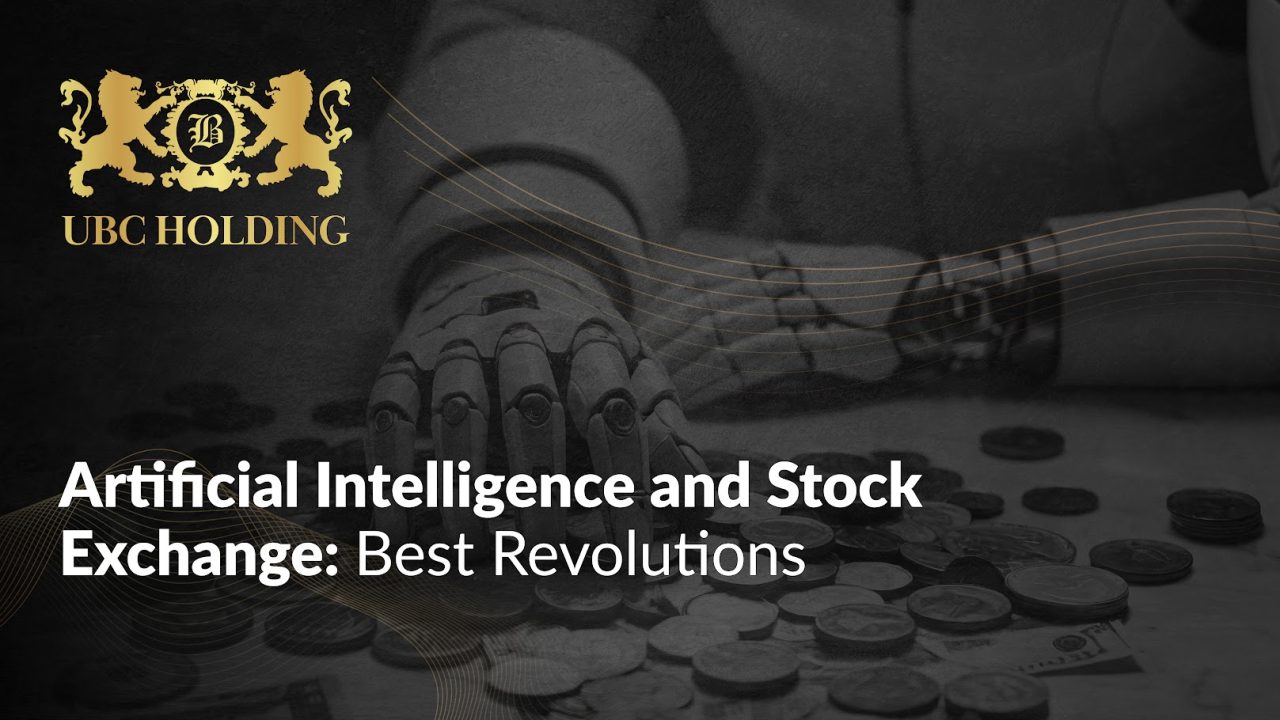Artificial Intelligence (AI) has become a transformative force across numerous industries, with the stock exchange being one of the most profoundly affected sectors. The integration of artificial intelligence and stock exchange systems has introduced revolutionary changes, enhancing efficiency, accuracy, and profitability. This article delves into the best revolutions brought about by artificial intelligence and stock exchange convergence, exploring how AI is reshaping trading strategies, market analysis, and investment decisions.
Introduction to Artificial Intelligence in the Stock Exchange

Historical Context
The journey of integrating artificial intelligence and stock exchange operations began with the advent of electronic trading systems in the late 20th century. Early innovations focused on automating trade executions, but the rapid advancement of AI technology has since opened new frontiers in market prediction, algorithmic trading, and data analysis.
The Evolution of AI in Trading
The application of AI in trading has evolved from simple rule-based systems to complex machine learning algorithms capable of processing vast datasets and making real-time decisions. Key developments include neural networks, deep learning, and natural language processing (NLP), all contributing to more sophisticated and accurate trading models.
Major Revolutions in AI-Driven Stock Exchange
Enhanced Predictive Analytics
One of the most significant revolutions brought about by artificial intelligence and stock exchange integration is the enhancement of predictive analytics. AI algorithms analyze historical data, market trends, and external factors to predict future stock prices and market movements. These predictions help traders make informed decisions, reducing risks and maximizing returns.
Machine Learning Models
Machine learning models, such as regression analysis and time-series forecasting, have been instrumental in improving predictive analytics. These models learn from historical data and continuously adapt to new information, providing traders with up-to-date insights and forecasts.
Algorithmic Trading
Algorithmic trading, powered by AI, executes trades at high speeds and volumes, far beyond human capabilities. This revolution has transformed stock trading by minimizing human error and leveraging complex algorithms to identify and act on market opportunities.
High-Frequency Trading
High-frequency trading (HFT) is a subset of algorithmic trading that uses AI to execute a large number of trades in milliseconds. HFT strategies capitalize on minor price discrepancies, generating significant profits through rapid and precise trading actions.
Sentiment Analysis
AI-driven sentiment analysis involves processing and analyzing textual data from news articles, social media, and financial reports to gauge market sentiment. By understanding public sentiment, AI systems can predict market reactions and inform trading strategies.
Natural Language Processing
Natural language processing (NLP) is the AI technology behind sentiment analysis. NLP algorithms interpret and classify textual data, providing traders with valuable insights into market sentiment and potential price movements.
Portfolio Optimization
AI has revolutionized portfolio optimization by analyzing vast amounts of data to develop personalized investment strategies. These strategies are tailored to individual risk profiles, investment goals, and market conditions, ensuring optimal asset allocation and risk management.
Robo-Advisors
Robo-advisors are AI-driven platforms that offer automated, algorithm-based financial planning services. They provide personalized investment recommendations and portfolio management, making sophisticated financial advice accessible to a broader audience.
Risk Management
Effective risk management is crucial in stock trading, and AI provides advanced tools for identifying and mitigating risks. AI algorithms analyze market data, detect potential threats, and suggest strategies to minimize losses.
Predictive Risk Analytics
Predictive risk analytics use AI to forecast potential market downturns and adverse events. By anticipating risks, traders can take proactive measures to protect their investments and ensure long-term profitability.
Case Studies of AI in Stock Exchange
Renaissance Technologies
Renaissance Technologies, a prominent hedge fund, is renowned for its use of AI in trading. The firm’s Medallion Fund employs complex AI algorithms to analyze market data and execute trades. Renaissance Technologies’ success demonstrates the transformative power of artificial intelligence and stock exchange integration.
JPMorgan Chase
JPMorgan Chase has embraced AI to enhance its trading operations. The bank’s AI-driven platform, LOXM, uses machine learning to execute trades with high precision and efficiency. This case study highlights the benefits of AI in improving trading strategies and operational performance.
BlackRock
BlackRock, the world’s largest asset manager, leverages AI to optimize its portfolio management. The firm’s Aladdin platform uses AI algorithms to analyze market trends, assess risks, and develop personalized investment strategies. BlackRock’s use of AI showcases its potential to revolutionize asset management and investment decisions.
Future Trends in AI and Stock Exchange

Explainable AI
Explainable AI is an emerging trend focused on making AI systems more transparent and interpretable. In the stock exchange, explainable AI provides clear explanations for AI-driven predictions and decisions, enhancing trust and regulatory compliance.
Integration with Blockchain
The integration of AI with blockchain technology offers significant advantages in terms of security, transparency, and efficiency. Blockchain provides a secure and immutable ledger for transactions, while AI analyzes blockchain data to detect patterns and anomalies.
Quantum Computing
Quantum computing holds the potential to revolutionize AI in the stock exchange by offering unprecedented computational power. Quantum computers can process complex calculations much faster than classical computers, enhancing predictive analytics, risk management, and trading strategies.
Personalized Financial Services
AI is paving the way for personalized financial services, offering tailored solutions based on individual preferences and needs. AI-driven platforms provide customized investment recommendations, financial planning advice, and credit scoring, catering to unique financial goals and risk profiles.
Ethical and Responsible AI
Ensuring ethical and responsible AI practices is crucial for maintaining trust and integrity in stock trading. Financial institutions must implement guidelines and frameworks to promote fairness, transparency, and accountability in AI systems.
Implementing AI in Stock Trading: Best Practices
Ensuring Data Quality
Data quality is critical for the success of AI in the stock exchange. Financial institutions should invest in robust data management practices to ensure the accuracy, completeness, and consistency of their data.
Continuous Learning and Development
Continuous learning is essential for staying ahead of the curve in stock trading. Financial institutions should invest in ongoing training and development for their AI teams, keeping them updated on the latest advancements and best practices.
Collaboration and Cross-Disciplinary Teams
Successful implementation of AI in the stock exchange requires collaboration between data scientists, financial analysts, and regulatory experts. Cross-disciplinary teams bring diverse perspectives and expertise, enhancing the development and implementation of AI solutions.
Ethical AI Practices
Ensuring ethical AI practices is crucial for maintaining trust and integrity in stock trading. Financial institutions should implement guidelines and frameworks to promote fairness, transparency, and accountability in AI systems.
Investing in Security
The security of AI systems is paramount, especially in the financial industry. Financial institutions should implement robust security measures to protect AI models and data from cyber threats.
Conclusion
The integration of artificial intelligence and stock exchange systems has brought about revolutionary changes in the financial industry. From enhanced predictive analytics and algorithmic trading to sentiment analysis and portfolio optimization, AI is transforming stock trading and investment strategies. As we look to the future, emerging trends such as explainable AI, blockchain integration, and quantum computing hold the potential to further enhance AI’s role in the stock exchange.
By understanding and embracing these advancements, financial institutions can unlock new opportunities, optimize their operations, and achieve greater success. Implementing best practices, including ensuring data quality, continuous learning, collaboration, ethical AI practices, and investing in security, is essential for maximizing the benefits of AI in stock trading.
The Impact of Artificial Intelligence on Stock Exchange Trading

